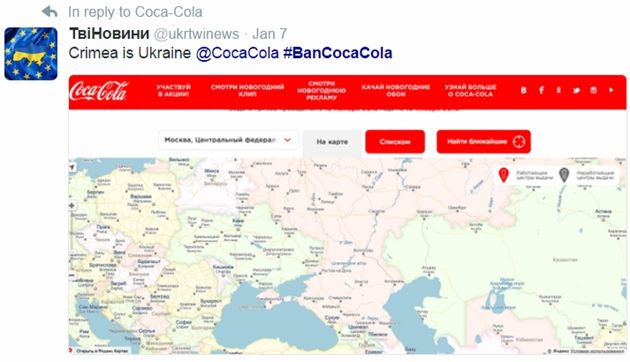Social media listening or monitoring has become a routine task in digital marketing recently, and though the necessity of the process is apparent to most social media marketers, the details of it aren't.
The common question is this: What keywords should I monitor?
To answer that question comprehensively, I will first explain what the word "keyword" (sorry for the tautology) means in this context, then move on to the types of keywords, and show you examples of keywords that are commonly monitored.
In social media monitoring, keywords are the words or the word combinations that you provide the social media monitoring app or tool so that the program can find all online documents that contain those keywords. A keyword can be anything, from "Coca-Cola" to "Every dream that I dream seems to float on by." Any separate piece of text is called a document: for example, a Tweet, a Facebook or a Google Plus post, a blog post, a public comment on the forum, and so on.
Keep in mind that some apps look for mentions on the specific social media platforms only, so if you want to cover the entire Web, you should check whether the app you're about to use or buy does that; Awario, Mention, Brand24 would be a few examples to check.
The general approach to social media monitoring, however, applies to all tools, so let's get an understanding of what to track before you start. To simplify the learning process, let's break down keywords into 5 types:
- Brand (e.g., "University College London" "UCL")
- Person (e.g., "Justin Trudeau" "Justin Pierre James Trudeau")
- Campaign (e.g., "#PinkShirtDay" "Make music great again")
- Industry (e.g., "Social media management tools" "Social media management software")
- URL (e.g., link: "awario.com/blog")
Depending on your goals (e.g., reputation management), you might not end up tracking all these types of keywords. However, you have to know about the benefits of each to make an informed decision regarding which ones to monitor.
Brand
1. Track the name of your brand
This is the most essential keyword to track. Whether your goal is customer service, reputation management, market research, social selling, SEO, or almost anything else related to your business, you have to know what people are saying online about your brand.
You might think that you'll get notifications on Twitter or tags on Facebook every time someone mentions your brand, but that is simply not true. People often don't bother with tagging, yet they expect a response to their comment, especially a complaint. People who say something positive about your brand might not actually be expecting a response, but thanking them for their comment will reinforce their satisfaction with your brand—and also attract new customers, since your every move on social media is public.
Questions about your brand might not be directed to you at all, but you will have more of a chance to win over the potential customer if you are the one answering the question. Otherwise, the answer might as well be given by your competitor!
Those are just the basic reasons for brand monitoring. A more sophisticated reason, for example, would be research: By monitoring your brand, you discover whether it is staying top of mind, or not (which might be a result of the season, campaigns you're running, etc.).
Don't forget to include variations and common misspellings of your brand's name. You might not be aware of every way your brand's name is modified by consumers straightaway, so perfecting your brand keyword alert will most likely take a couple of tries.
2. Track the name of your competitor's brand
In the same way you set up an alert for your brand (the step-by-step process is different for different tools, so there is no universal guide for that), you can set up an alert for your competitor's brand. Or for a couple of your main competitors.
The goals behind monitoring your competitor's brand are primarily research and social selling. If your social media monitoring tool has basic built-in analytics functions, you will see how, how well, the social media marketing strategy is working for your competitors. And you'll see many opportunities for social selling. For example, imagine how fruitful reacting to negative mentions about and reviews of your competitors can be...

Person
1. Track your CEO
Does your CEO have any kind of social media presence? Are you the CEO of the company? Whatever the situation is, you most likely have to track mentions of the main person in the company. That person might have given one lecture at one tiny seminar or unknowingly talked to a journalist... you never know. Yet every mention of your CEO can have an effect on the company and its reputation.
2. Track your spokesperson
Granted, there is a high chance you don't have one; you can safely move on to the next point. However, if there is a person in your company who regularly gives interviews, participates in major events, organizes events, and is basically a public figure representing your brand to the world, it is absolutely essential to track that person. In their case, no matter how much you try, you can't separate personal brand and the company's brand.
Campaign
1. Track the campaigns you're running
Social media monitoring lets you observe how the public reacts to your campaign in the most detailed way. You can watch for both online and offline campaigns, as people discuss both types online.
Monitoring is helpful for understanding what people enjoy and what they dislike about your campaign, and whether it's working at all; moreover, you will be the first to know if something in your campaign goes wrong.
Nothing happens as quickly as a social media crisis, and it's extremely important for the company's reputation that you react to it in time.

2. Track your blog posts
If your company publishes a blog, it's helpful to track the blog posts as well. They work pretty much like a campaign does: You get mentions and reactions to your post for two-three weeks after its release. Monitoring the name of the post and the link to it lets you easily reply to all mentions, comments, and shares from a single dashboard.
Industry
Track the name of your product
Granted, tracking your product is not a straightforward task. If you're a clothes manufacturer, the situation seems almost helpless (so many products!). If you're an online shop that sells kilts, the situation is, luckily, very different for you... Yet, you still have to know what exact word combinations to track for best results. To do that, I suggest using our Rank Tracker tool to find all the keywords you need to set up an alert, without manual work.
By tracking your industry keywords, you make sure you're there when the user is looking for a product like yours. It also means you can find any online niches out there that you can use in your marketing strategy—maybe a blogger, a Q & A site, a forum where people discuss such products, an Instagram user with thousands of relevant followers, or anyone else.
URL
1. Track mentions of your brand with no links to your brand
That subtitle might sound confusing, but bear with me. We've been talking predominantly about social media marketing up to this point. Now it's time for SEO. Backlinks are known to be an important factor in SEO, and social media monitoring can help you with building them. Monitor the Web to find websites that mention your brand but don't link to it; then, you can contact the webmasters and ask them to insert the link to build your website's authority.
2. Track mentions of your competitor's URL
Again, this one is more for the sake of SEO than anything else, although exposure is a possible goal as well. By tracking your competitor's URL, you'll find the websites your competitors are getting their backlinks from. For you, that means guest-posting and similar opportunities. If the blogger, for example, has accepted one from your main competitor, they most likely are interested in the product/topic and would accept one from you, too.
Conclusion
Social media monitoring might seem like a time-consuming process after you've read this article. The truth, however, is that it takes no more than an hour or so to decide on the keywords and set up alerts for them. The rest is done for you: All you have to do after that is choose an hour in your schedule that you'll be dedicating to dealing with mentions that are found and saved for your review. And the huge part of your social media monitoring strategy is done!




